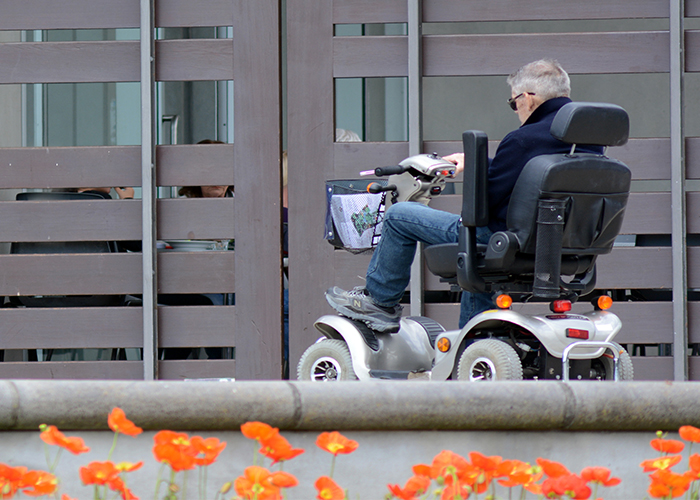Cooper Grace Ward is pleased to announce its inclusion in the 2025 Doyles Guide rankings for Insolvency & Restructuring Law. ...

In the recent case of Whitton v Dexus Funds Management Limited [2019] NSWDC 579, Ms Whitton failed to establish liability against an operator of a shopping centre in New South Wales after she was struck from behind by a mobility scooter while shopping.
On 17 July 2016, Ms Whitton was coming out of an amenities corridor at the shopping complex when she was struck by an unregistered mobility scooter that was travelling along the main thoroughfare. Ms Whitton alleged that a shopfront hoarding restricted her view when entering the main thoroughfare from the amenities corridor.
Ms Whitton argued that the operator of the shopping centre:
Ms Whitton obtained an expert liability report from Mr David Dubos in support of her claim. Mr Dubos outlined a range of reasonable alternatives that he said were available to the managers of the shopping centre that, if implemented, could have prevented the accident. These alternatives included:
The Court ultimately found in favour of the operator of the shopping centre. The Court explained that it was obvious to anyone exiting the amenities corridor that they were approaching a blind corner and had to exercise care for their own safety. The Court drew parallels between persons exiting an amenities corridor with persons exiting normal shop fronts where there is not a clear view due to the nature of the exit or goods displayed in shop windows.
The Court accepted it was foreseeable that a patron of the shopping centre might be struck and injured by a mobility scooter in the shopping centre. However, the Court determined that Ms Whitton failed to establish the risk of a patron being injured by a mobility scooter was ‘not insignificant’. In reaching this conclusion, the Court noted the following:
The Court determined a reasonable person in the position of the operator of the shopping centre would not have taken the precautions suggested by Ms Whitton’s expert. Accordingly, it was held the operator of the shopping centre did not breach its duty of care to Ms Whitton.
This publication is for information only and is not legal advice. You should obtain advice that is specific to your circumstances and not rely on this publication as legal advice. If there are any issues you would like us to advise you on arising from this publication, please let us know.
Subscribe to our interest lists to receive legal alerts, articles, event invitations and offers.
Cooper Grace Ward acknowledges and pays respect to the past, present and future Traditional Custodians and Elders of this nation and the continuation of cultural, spiritual and educational practices of Aboriginal and Torres Strait Islander peoples.
Fast, accurate and flexible entities including companies, self-managed superannuation funds and trusts.